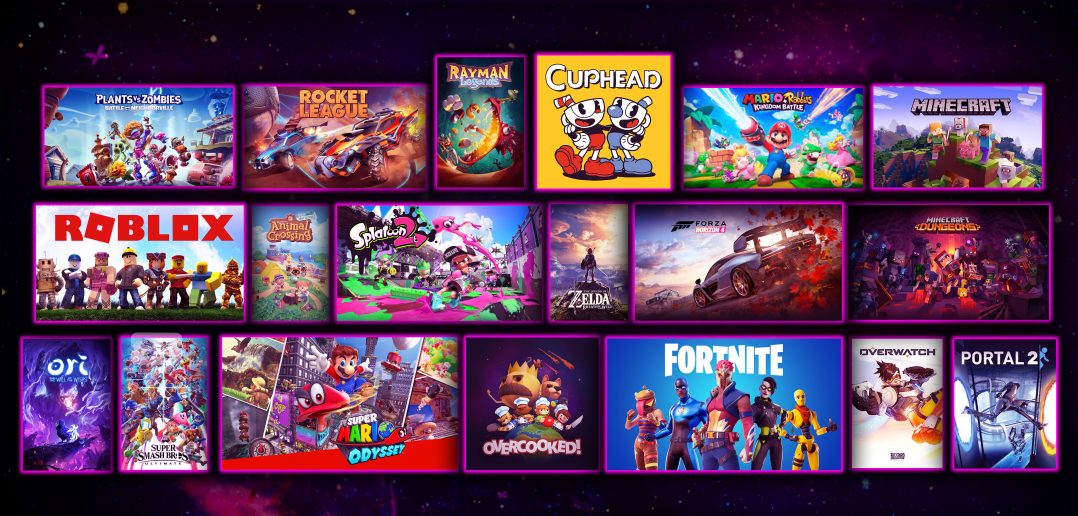CSGO Flares: Your Ultimate Esports Hub
Explore the latest news, tips, and insights from the world of CS:GO.
Playing by Heart: What Video Games Teach Us About Life
Discover life lessons from video games that go beyond the screen—unlocking wisdom, creativity, and resilience. Play with purpose!
Leveling Up: What Life Lessons Can We Learn from Video Game Mechanics?
Video games are not just a source of entertainment; they often contain valuable life lessons subtly embedded within their mechanics. One such lesson is the concept of leveling up. In many games, players must face challenges, defeat enemies, and complete quests to earn experience points that contribute to their overall growth. This mirrors real life, where we must confront obstacles and push our limits to achieve personal development. By recognizing that setbacks are part of the journey, we can embrace our failures and view them as necessary steps toward success.
Another crucial lesson we can take from video game mechanics is the importance of teamwork. In multiplayer settings, collaborating with others leads to greater achievements and rewards. This teaches us the value of building strong relationships and fostering a sense of community in our endeavors. Just as a gaming team must strategize and communicate effectively to win challenges, we can enhance our professional and personal lives by working harmoniously with those around us. Ultimately, embracing these video game mechanics can provide us with a roadmap for navigating the complexities of life.

The Power of Choice: How Video Games Teach Us Decision-Making Skills
The Power of Choice in video games is more than just a gameplay mechanic; it serves as a fundamental teaching tool for decision-making skills. Players are often faced with critical choices that can significantly impact the course of the game. For instance, role-playing games (RPGs) frequently present players with moral dilemmas where their choices affect not only the storyline but also the development of their character and relationships with non-playable characters (NPCs). These scenarios require players to weigh consequences, consider ethical implications, and make strategic decisions, thus honing their ability to evaluate options based on long-term effects.
Moreover, video games often incorporate dynamic environments and evolving narratives that challenge players to adapt their strategies in real time. This unpredictability mirrors real-life situations where quick thinking and effective decision-making are crucial. As players engage with these complex gameplay mechanics, they develop a deeper understanding of the decision-making process. For example, in strategy games, players must analyze resources, anticipate opponents' moves, and prioritize actions under time constraints. This not only cultivates critical thinking skills but also reinforces the importance of making informed choices, ultimately preparing players for real-world challenges.
Behind the Screen: What Real-Life Values Are Reflected in Popular Video Games?
In the ever-evolving world of gaming, popular video games often serve as a mirror reflecting the real-life values of society. These values can range from teamwork and cooperation, as seen in multiplayer games like Overwatch and Fortnite, to moral dilemmas presented in narrative-driven titles like The Last of Us. Players are frequently placed in situations that challenge their ethical beliefs, prompting them to make decisions that weigh the needs of the many against the needs of the few. This interactive storytelling not only entertains but also fosters critical thinking and empathy among players, illustrating the complexities of human nature.
Furthermore, many video games promote inclusivity and diversity, encouraging players to step into the shoes of characters from different backgrounds. For instance, games like Life is Strange and Celeste tackle issues such as mental health and LGBTQ+ representation, reinforcing the importance of understanding and accepting varied experiences and perspectives. The immersive nature of gaming allows players to develop a sense of connection with these themes, ultimately influencing their real-world attitudes and behaviors. As the gaming industry continues to grow, it's clear that the values depicted in these interactive ecosystems can have profound implications on societal norms and individual worldviews.